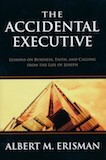Should We Really Talk in Terms of Work-Life Balance?
Blog / Produced by The High Calling
The topic of work-life balance is a hot one today. Millions of people around the world are trying to do what they call "balancing their life and their work." My Google search on "work-life balance" turned up 36,200,000 hits, beginning, of course, with the Wikipedia "Work-life balance" page, followed by WebMD and the Mayo Clinic. All over the Internet and in bestselling books like Sheryl Sanders' Lean In, people are trying to figure out how to balance their work and their life.
I get this. I get it as one who regularly observes cultural trends. I get it as a pastor who, for over twenty-five years, has listened to people share the challenges and frustrations of their lives. And I get it as one who struggles all the time to live in a healthy, balanced way. I love my work, and I work a lot. I love my family and want to spend plenty of time with them. I want to have ample time for play, friendship, rest, and worship.
So, am I trying to balance my work and my life? Not really, when I think about it carefully. Please allow me to explain.
An Inaccurate Distinction?
If I think and talk in terms of balancing my work and my life, I seem to be assuming that my work and life are distinct things. My work is over here and my life is over there. But is this true? It is only if I assume that my work is not part of my life, that it is something extra, something separate, something extrinsic to my real life. But is this right?
Even apart from theological reflection, which I will offer in a moment, it doesn't make much sense to separate work from life. Practically speaking, work is a huge part of life. This is surely the case for people who think of work as a paying job. But work includes more than this. It takes work to raise children, manage a household, do the laundry, learn in school, organize political action, and feed the poor. Ben Affleck received plenty of ribbing for what he said about marriage in his 2013 Oscar acceptance speech. No matter what happened later in his marriage, he was right on target when he said to his wife, "I want to thank you for working on our marriage for ten Christmases. It’s good, it is work, but it’s the best kind of work, and there’s no one I’d rather work with."
So, when we talk about "work-life balance," we are creating a distinction that isn't particularly helpful or accurate if work is actually a part of life, and a major part at that. In fact, for many of us, work takes up by far the majority of our time. It's the biggest piece of our life.
Work in the Bible
A Christian perspective on work and life confirms this practical judgment. God created human beings in God's own image so that we might "be fruitful and multiply [and] fill the earth and govern it" (Gen. 1:28). In others words, we were created to work, in imitation of God the worker. The second chapter of Genesis underscores this truth in that God created the man in order to "tend and watch over" the garden (Gen. 2:15). God added the woman as a partner to the man in his work, giving her the additional work of bearing children.
In the Ten Commandments, God established basic guidance for how to live a fruitful life. Central to this guidance was the command to "observe the Sabbath" (Exod. 20:8). Yet, this particular commandment underscores the value of work, "You have six days each week for your ordinary work, but the seventh day is a Sabbath day of rest … " (Exod. 20:9-10). God appears to assume that 85 percent of our life, more or less, is for work. From a temporal point of view, God did not even establish an even balance in life between work and rest.
I could go on throughout dozens of passages of Scripture that confirm the fact that, from a Christian perspective, work is an essential, God-given part of life. This explains, in part, why it's difficult—if not impossible—to find biblical passages that address the question of "work-life balance." That's just not how Scripture envisions the life God intends for us. (If you're looking for theological and practical wisdom for your work, I highly recommend a fantastic resource: Theology of Work Project.)
The point I'm making here about language and thinking might be correct, but it doesn't address our yearning to find balance in our lives—and not just balance, but also health, wholeness, and joy. Millions of us are working so much that our lives are way out of whack. We yearn for something that we've been calling "work-life balance." But if this is not the right way to talk about our heart's desire, what might be better?
Scripture suggests one obvious approach. We could talk about finding a balance between work and rest. This would make sense theologically and practically. Who doesn't need more and better rest, rest that truly restores? A discussion of the balance between work and rest would be a fine starting point.
Rhythms of Work, Rest, and Play
A more nuanced and intriguing perspective is suggested by my friend, Greg Jones. In addition to being a professor of theology at Duke University, Greg is also the Strategic Director of the Laity Lodge Leadership Initiative. He suggests that we talk not of balance, but rather of "the rhythms of work, rest, and play." I am drawn to Greg's language of rhythms, rather than balance, and I believe his inclusion of play is not only attractive, but also well-grounded theologically.
I wonder, however, if we might benefit from a way of thinking about the rhythms of life that recognizes greater complexity within work, rest, and play. (I expect Greg would agree with this suggestion, by the way.) Take my life, for example. My most obvious work is at my day job (well, sometimes my night job, too) at Foundations for Laity Renewal (the mother ship of The High Calling and Laity Lodge). As Executive Director of Digital Media and Theological and Cultural Steward, I do plenty of work. But I also work when I mow the lawn, counsel my children, iron my clothes, and feed the dog. I agree with Ben Affleck that marriage takes plenty of work, and I'm quite sure my wife would concur. The work we have invested in our marriage has been some of the hardest and most rewarding work of our lives.
Thus, I need to find the right balance or, if you prefer, to establish healthy rhythms for the different kinds of work that fill my life, in addition to rest and play. Of course, both rest and play include various elements as well. There is the rest of sleep, the rest of prayer, the rest of walking in the woods, and so on. There is playing when I'm trying to master Tetris on my iPhone, when I'm watching Iron Man 3 with my son, and when I'm doing a jigsaw puzzle with my mother.
I'm not ready to suggest the best way for talking about the complex balances or rhythms of our lives. I'm still working on this, theologically and personally. But I am convinced that our conversation about work, life, and play would be enriched—and be more enriching—if we saw work, alongside rest and play, as an essential element of our life. Our question, then, is not how to balance work and life so much as how to live a balanced, fruitful life that comprises healthy, blessed rhythms of work, rest, and play.





